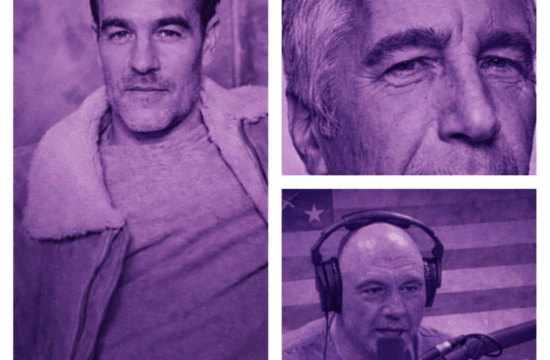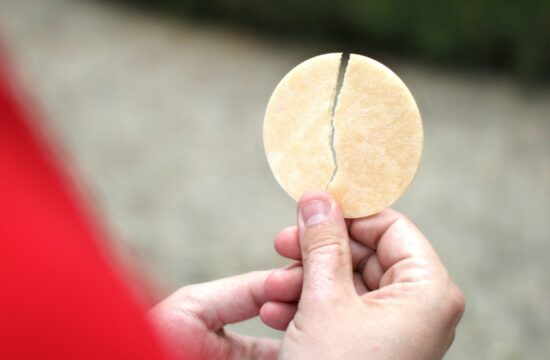In the past few years, and especially in these last weeks, we’ve watched a troubling trend accelerate in our public life: the rise of “prayer shaming.” It feels like every time tragedy strikes, especially when the pain is raw and the wounds are fresh, the simple offer of “thoughts and prayers” is not only dismissed but sometimes attacked outright.
We saw it all over social media after the floods in Texas just two weeks ago—those devastating waters that swept away neighborhoods, destroyed schools, and claimed the lives of so many children. Politicians, celebrities, and ordinary people alike posted messages promising prayers for the victims and their families. Instead of comfort, many of them were met with scorn. “Don’t just pray—do something!” people shouted in comment sections and headlines, as if prayer itself were an act of cowardice or denial.
And then, as if our hearts weren’t already heavy enough, the news broke about the attack on a Catholic Church in Gaza. People had come seeking refuge and peace, and instead, violence tore through sacred walls. The images of devastation, of shattered statues and frightened families clutching rosaries, spread instantly across the world. Again, people of faith—especially Catholics—responded as we always do: with prayers, with vigils, with quiet moments of lament. And again, the chorus rose up: “What good is prayer now?” Some even blamed faith itself for the violence, as if prayer and action, or religion and justice, must always be at odds.
Thank you for taking the time to read this homily for the 16th Sunday in Ordinary Time (July 20, 2025). Your support means a great deal to me, and I’m deeply grateful for the many who share these messages with their friends, families and social media followers. If you’ve found meaning in these words, I’d be grateful if you’d share them with others who might benefit.
And for those who prefer listening, you can find the audio version on SoundCloud HERE or subscribe to the podcast on iTunes HERE. Your comments, messages, and the way you’ve embraced these homilies continue to inspire me. Sincerely in Christ -Father Jim
Why is this happening? Part of it is the world itself: more secular than ever, more skeptical, more fractured. We see suffering in real time, piped directly to our phones and screens. Every tragedy is immediate and personal, and the demand for action—swift, visible, satisfying—feels urgent. Political divisions only sharpen the suspicion. Any gesture of faith is easily dismissed as empty talk, or worse, as a way to avoid responsibility.
But as Christians, we know in our bones that this is a false choice. Prayer and action are not opposites. In fact, they need each other. Our own history proves it: every movement for justice, for dignity, for peace in this country has been shaped by people of faith who prayed and then acted. The civil rights marches of the 1960s began in church basements with hymns and prayer circles, and only then moved out into the streets. The struggle for women’s rights, for workers’ rights, for the rights of the unborn—none of these would have happened without the spiritual fuel of prayer.
And yet, even in our own hearts, we sometimes feel the pull of either/or. We want to be people of action, not just words. Or maybe, when we feel helpless, we cling to prayer as the only thing left. What does Jesus have to say to us, caught between these choices? The answer is in today’s Gospel.
Jesus visits the home of two sisters: Martha and Mary. Martha is the doer, bustling around the house, making sure every detail is perfect for her guest. Mary is the listener, sitting at Jesus’ feet, soaking in every word. Martha gets frustrated—as any of us would!—and asks Jesus to tell Mary to help out. But Jesus surprises her: “Martha, Martha, you are anxious and troubled about many things; Mary has chosen the better part, and it will not be taken from her.”
At first glance, it sounds like Jesus is dismissing Martha’s hard work, or telling us that prayer is better than action. But look closer. Jesus never says that Martha’s service isn’t valuable. He doesn’t tell her to stop working. Instead, he points to what’s happening inside her heart. Martha’s busyness has become bitterness. She’s lost sight of why she’s serving at all—lost sight, even, of who she’s serving. Her work, without prayer, slips into resentment. Her action, without love, becomes judgment.
Mary, meanwhile, isn’t being lazy or irresponsible. She’s present to Jesus. She’s listening, open, attentive. She has made space for the relationship that gives meaning to all the rest.
This story isn’t about picking sides between Martha and Mary. It’s about the danger of separating prayer and action, as if they were rivals. It’s about the risk—so real, especially now—of letting our efforts become frantic, self-justifying, or divisive. It’s about remembering that every act of service, if it’s going to last, needs to be rooted in relationship with God.
And this is exactly what we’re in danger of losing when we “prayer shame.” We risk forgetting that prayer is not a substitute for action—it’s the beginning of it. Prayer is where we bring our grief, our anger, our confusion, and our helplessness to God. Prayer is where we receive wisdom, courage, and compassion for the work ahead. Prayer is where we remember, over and over, that we are not the saviors of the world—God is. And it’s God who invites us to join him in the work of healing.
After the Texas floods, prayer led people to show up with food, clothing, and shelter for their neighbors. After the attack in Gaza, prayer is sustaining Catholic relief workers, doctors, and nuns risking their lives to care for the wounded and the grieving. And when we pray—really pray, not just tweet about it—we are changed. We become less anxious, less angry, less inclined to judge and more ready to love.
Pope Benedict XVI once wrote:
“Prayer is not an escape from reality or from the problems of life; it is both action and the source of action. Only through prayer can we learn the profound meaning of our lives, and, in prayer, we find the strength to transform the world.”
Mass is where this all comes together. Here, we hear God’s word, we receive the Eucharist, we are drawn into the mystery of Christ’s sacrifice and love. But Mass is not the end of our calling. It’s the beginning. I know how easy it is to rush out these doors, swept up again into the news cycle, the next crisis, the endless demands. I have to remind myself all the time: I’m not the Savior. I am, at best, one of his customer service reps—bringing him the cries and needs of the world, asking him how he wants to use me today.
Even Jesus, before every major moment in his life and ministry, prayed first. Before choosing his disciples; before feeding the crowds; before facing the cross—he stopped, he listened, he opened himself to the Father. If the Son of God needed that pause, that grounding, how much more do we?
We live in a world that feels out of control—where violence enters our churches, where floods sweep away our sense of safety, where anger and division seem to grow louder every day. We need action, yes. But we need prayer even more—not as an excuse, but as the wellspring for everything else. God moves through prayer. He loves us, he mourns with us, and he wants to give us the strength and wisdom we need to be his hands in the world.
So don’t be discouraged by the mockery or the cynicism. Don’t let the noise drown out the still, small voice calling you back to God. Pray for Texas. Pray for Gaza. Pray for our broken world. And then, let God send you out—like Martha, like Mary, like all the saints before us—to love, to serve, and to heal.
He has promised: “I will not leave you orphans.” He is here. He is listening. He will never leave us—no matter how loud the storms may be.











